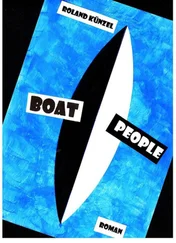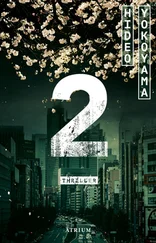We were working for fun. It was just a hobby—so we didn’t stay in one place for long. We switched jobs at breakneck speed. And when we changed jobs, we changed stations, too. The location changed—but our morning ritual was constant.
When we were done eating, the trash had to go somewhere. But some lines had better trash cans than others. If you ask me, the Marunouchi Line had the best bins in the business.
Masuo Hashiguchi: That’s how you think of the Marunouchi Line? The one with the trash cans?
Me: Pretty much.
Hisashi Iwata: Oh.
Shigeru Kaji: I think I get that.
Me: The day before yesterday was the solstice…
We crush our empty coffee cans.
Me (continuing): And I was on the Marunouchi Line—heading to Yotsuya. You know how it’s always dark, because you’re underground, then right before you get to the station you surface and the sun hits you? The other day, at that moment, I felt like the sun was right over me. Then I got off at Yotsuya and met up with you mugs .
Hisashi Iwata: Oh.
Shigeru Kaji: I get that.
Masuo Hashiguchi: Works for me. Real poetic. I guess I was thinking kind of literally. Like, some tropical location somewhere.
Me: What made you ask anyway?
Masuo Hashiguchi: I dunno. Guess I was daydreaming. About a little getaway, just us and our girlfriends.
Me: In the middle of winter?
Masuo Hashiguchi: Haha, yeah… Like those celebrities who fly to Honolulu for New Year’s or something.
Takeru Igarashi: Sign me up, man.
Masuo Hashiguchi: You serious?
Kaji and Iwata and I all nod. Unanimous.
Masuo Hashiguchi: Is it just me… or is it getting hot down here?
The end of the line?
We didn’t know our underground breakfasts wouldn’t last forever.
We didn’t know about the 1995 underground gas attack. Or the citywide removal of subway station trash receptacles that would follow.
A future with nowhere for trash to go.
Nobody saw that coming. Because we were still living in 1994.
BOAT SIX
YOU? IN BUSINESS?
About my third girlfriend.
Fast-forward six years—to 2000 A.D. Except, well, I wasn’t some boy in a bubble. Things happened in between. So let me fill you in real quick.
A detour before we get around to my third escape attempt and its inevitable failure.
Remember my rival in love? Yakisoba Man? Well, I thought he was my rival, but I guess that was all in my head. Yakisoba Man never made it to Haneda, either. That’s right. My second girlfriend caught that plane to Okinawa, plus none. She was totally devastated when I didn’t show. It makes me want to cry out at a hundred decibels: YOU’RE WRONG!
But how could she know? She had no idea I was blacked out on a train on the Yamanote Line. Typically, I’m the great misreader. I like to think I hold the patent on getting things wrong. Shit, I probably could have sued her for patent infringement.
This is what I get for going behind his back …
I bet she was crushed. Clueless and crushed.
She got on that flight (the seat beside her empty), connected in Naha, and landed in Miyakojima.
Did she find Shangri-La there?
Beats me.
I learnt everything I know—her side of the story or whatever—from a letter. One letter from Okinawa. That’s all she wrote. My second girlfriend quit school (by the time she sent that letter, the necessary paperwork had already been filed with the admissions office) and vacated Casa Komagome (an aunt from Saitama acted as her proxy), never to return from her areolar paradise.
OK, my turn.
I read that letter in my hospital bed. My mom brought it when she came to visit. Yeah, my heart was broken. But that wasn’t the only thing. I was hospitalized for broken bones sustained in the Yamanote brawl. Or, as the episode is known in the annals of my history, TRAGEDY OUTSIDE MEJIRO STATION. All of this bold.
My injuries were pretty serious. Three months to recover—that was the diagnosis. After I passed out on the train, men and women of all ages walked all over me, leaving me with six broken ribs. How many were left? On the bright side, my spinal cord was apparently intact.
Things were that bad.
That was how I learnt that when someone blacks out, they really black out.
They beat the shit out of me. No, they beat a lesson into me. There’s no way I’m ever getting out of Tokyo . Everything went black. Next thing I remember: the white fluorescence of my hospital room. I was looking up at the ceiling above my narrow cot. That was two days after my first procedure.
I was famous. Or—you know—infamous. The other passengers were seeking “damages”. Guess they were told to go after JR, too. The charges were, I went off like a machine gun—assaulting innocent after innocent. That was how the newspapers spun it the morning after: SIGN OF THE TIMES—REBEL WITHOUT A COMPASS LASHES OUT DURING GUERRILLA ATTACKS.
Let me get this straight. It was “innocents” who put me in the hospital?
Why the hell should I pay them anything? Isn’t that a little extreme?
While I was knocked out, the victims sang their innocent tune. Altogether now: “Money money money money!”
Then the media circus jumps in—singing in a round: “La-la-la logic can go fuck itself! Go fuck itself la-la-la-la.”
Justice had left me hard-up.
From my hospital bed, I watched the pile of bills grow. Meanwhile, reporters camped outside my Suginami home and interviewed every housewife in the neighbourhood, asking them what kind of kid they thought would do something so heinous. (My dear neighbours never failed to bring up my dropout past.) Whatever. Who cares?
My mom, it turns out.
“Moron!”
The first word out of her mouth when she came to the hospital.
Then, icy as a freezer: “You’re paying for this yourself! Everything. Your hospital bill, whatever you owe the people you swung at in the train. From now on, don’t even think about asking me for anything. That means tuition—if your school will even have you back. And once you get out of this bed, you can find your own place to live. You’re not coming home. You show your face and the TV crews will never leave. We’re going out of our minds dealing with them. Really, what the hell’s wrong with you? You’re a goddamn train wreck!”
Train wreck … My mom sure has a way with words.
Then what happened?
I worked like a horse—I had debts to pay. I borrowed what I needed to settle up my hospital bills, then paid my “victims” in monthly instalments. I found jobs. Day jobs, night jobs. Sometimes, I had three-shift days: morning, swing and graveyard. Sleep? I wasn’t sleeping much, to be honest. On average, I probably got a little over three hours a night. Maybe four. Just enough to keep a body moving. The only thing I had going for me was my youth—the inexhaustible energy of a nineteen-year-old. Nothing else. Just the stamina to fuel me through the sleepless years to follow.
I didn’t have time for rest, so I learnt to sleep deep. Quality over quantity. Meaning “no distractions”. Everything had to go. Including dreams.
I had almost no dreams in my workhorse years.
Not even enough to fill a short film.
It’s really strange. When I was ten or eleven, I did nothing but dream—now I was totally dry.
Life has a way of doing that—restoring balance. That’s how I see it, at least.
My mom really did kick me out of the house. I moved into a small, cheap place in Shinjuku. Kami-ochiai, ni-chome. The closest station was Nakai, on the Seibu Shinjuku Line. It was in a two-storey building several decades old. It was all wood, so I guess it had to be built after the war. Shared toilet, no bath. The sort of place where people live when they don’t have money—where rent’s stuck in the golden age of Godzilla. Financially, I cut every corner I could, spending next to nothing on food, almost never using electricity, never turning on the gas. I streamlined my bathing routine, which involved trips to the local bath and the coin shower (note: three minutes for the price of a coffee). I made it a priority to find jobs where meals were provided—which had the added benefit of helping me balance my diet. Clocking out of my last job for the day, I went straight home and slipped right into bed. No heat, no lights, no nothing. That’s how I survived. I didn’t have a phone, but my building had a line in the hallway, so I could receive calls from the outside world—as long as somebody was around to pick up. After a couple of years of hardcore work, I bought a PHS. One of my bosses (at a courier company) said I needed to get it, and told me where I could find one for almost nothing. My first briquette of plastic. At long last—the cellular age!
Читать дальше












